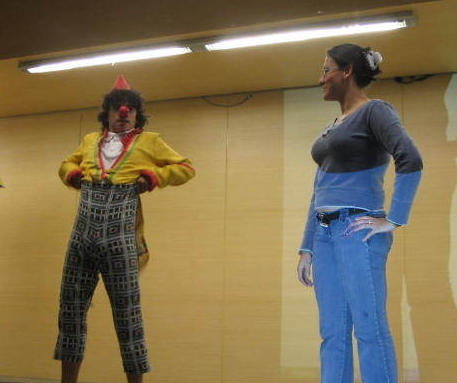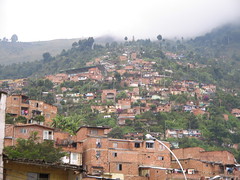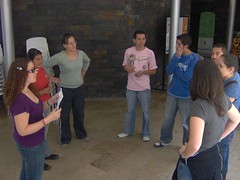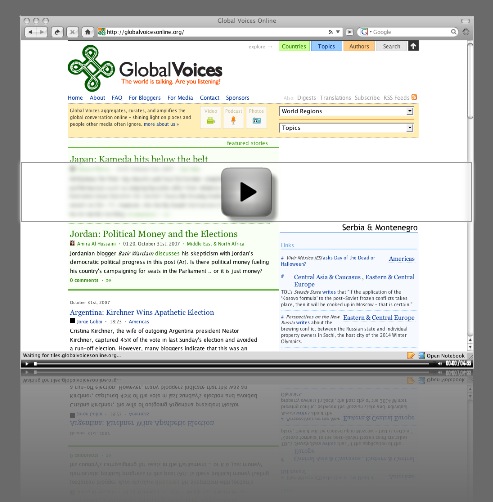One of the great things about going to Medelink was the networking possibilities. Today I went to a meeting with a Rotaract group, interested in having us give workshops at a school they've been working with on a rural area outside of Caldas, to the south of Medellín. It´s great to meet other young people interested in making changes in society, who do community service and who see it as a natural extension of a well rounded human being. They were very attentive as I told them about HiperBarrio and the changes it has wrought not only on the participants but also on the communities.
The tentative date to start blog workshops at this school depends on when they´ll have their computer room completely established at the school. When this part of the program kicks off, it will signify the second stage of Hiperbarrio: ex beneficiaries will go to other communities and train other young people in citizen media, and they´ll even get paid a symbolic amount for their work.
We believe new participants will get a lot more motivated if they see that there is a tangible economic benefit in learning these new citizen media tools. It will perhaps provide the extra push to get them to buy into collaboration and writing to share, and forego the drop out rates we´ve seen happen in other projects. If they see youth like them, with similar backgrounds and who started off at the same level of computer knowledge giving them the course material and getting paid… they´ll be able to model themselves after them, and get excited about their stories. It will also benefit the past participants who will be able to share their knowledge and experiences. It's a win-win situation.
We will be meeting with the school's principal after Easter break. The idea is that he'll sit in one of the new Caldas workshops we'll be starting this week to see what it is exactly that we plan to do at his school. From what I've been told, he sounds very much like our Hiperbarrio La Loma Librarian… someone giving, dedicated, hardworking and who cares about the community where he works. The principal has mentioned that he is interested in having the new computer lab at school open on weekends and after school so students and community members can use them and internet services: I can picture the future Salinas-Caldas participants working on weekends at the computer lab, blogging and writing and teaching others. If it works out, then it will spread to other rotaract clubs in other areas of the Medellin Metro area. It's great to see this project start walking on its own two feet into sustainability.




